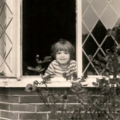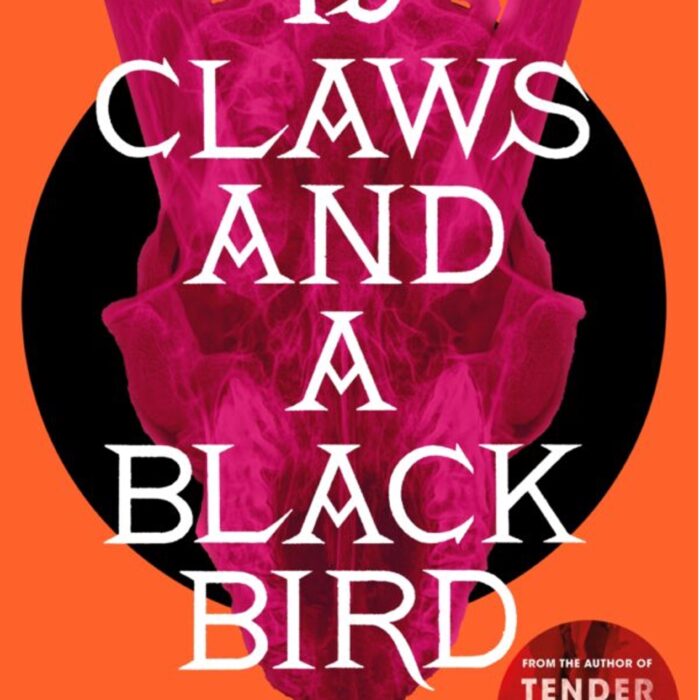You have no items in your cart. Want to get some nice things?
Go shopping
From his author picture, Simon Rich looks pretty happy (even if his mum probably made him wear a tie). Who wouldn’t be: three books, five screenplays, he used to work for Saturday Night Live (he’s its second youngest writer) and now he writes for Pixar. Indoor work with no heavy lifting and all by the tender age of 26. Did I mention his first collection of short stories was nominated for the Thurber Prize for American Humour? The Last Girlfriend On Earth (& Other Love Stories) is a collection of 30 humourous short stories about love, subdivided into sections called “Boy Meets Girl”, “Boy Gets Girl” and “Boy Loses Girl”.
They’re funny stories. Beautifully written. Hilarious at times.
But I don’t have much more to say about them.
Which is probably my only complaint: I’ve got little to say because The Last Girlfriend on Earth doesn’t have much to say. They’re a series of comic set-pieces – some sublime, some short, most feeling like they started out as ideas for comedy sketches that didn’t quite make it onto Saturday Night Live. The stories often involve a Generic College Guy in a comic situation: his ex is seeing Hitler, his girlfriend’s a Siren, he’s been propositioned by sex aliens.
There are some notable exceptions; “I Love Girl” and “The Present“, the first about a cavemen and the other a tale of lost love and time travel. These two stood out as poignant stories, rather than following the formula.
“I Love Girl” is a heartwarming tale of a lovelorn caveman: “There are many women in the world. By last count, seven. But she is the only one I ever loved.” It’s funny and sweet with possibly the best profession of love I’ve read in a while:
I will clear all the rocks for you and the child until I am eaten by a monster or die of the Great Disease. I will make you many paths so you can go all the places you want.
 “The Present” is a touching, rather sad story about a neglectful boyfriend and the perils of present shopping when you have invented a time machine. It’s the age-old dilemma; “quantum physics and nuclear hydraulics were trivial compared to the rigors of gift shopping.” It’s the only story where I didn’t laugh and I think a few more in this style might have served well as a counterpoint to the relentless humour of the book, where every ending is a punchline.
“The Present” is a touching, rather sad story about a neglectful boyfriend and the perils of present shopping when you have invented a time machine. It’s the age-old dilemma; “quantum physics and nuclear hydraulics were trivial compared to the rigors of gift shopping.” It’s the only story where I didn’t laugh and I think a few more in this style might have served well as a counterpoint to the relentless humour of the book, where every ending is a punchline.
That’s not to say the rest of the stories aren’t acutely observed. This is a smart, polished collection, and virtually anyone who picks it up will identify with the observations and laugh at the jokes. Rich leads with his best story: “Unprotected” is a fantastically innovative journey through a young man’s life told from the point of view of a prophylactic in his wallet. It’s touching and funny, told with control and compassion, building up a picture through the simple addition and subtraction of items to the wallet. There are some other gems, particularly in the “Boy Meets Girl” section, which is by far the strongest: in particular “Victory” and “Occupy Jen’s Street“, which rely less obviously on overtly outlandish situations. In the latter, we see the power of popular protest taken to absurd levels, as a student organises a demonstration against the object of his affection’s indifference. “Victory” recounts the aftermath when Josh, “just like, picked up a girl at a bar.” It’s a parallel universe where the President “phones to congratulate him” and the rest of the world applauds such an unlikely event.
If it weren’t for “I Love Girl“ and “The Present“ I’d just pigeonhole this as a humour book and leave it at that, but the blurb on the back promotes it as a collection about love. Simon Van Booy, a winner of the Frank O’Connor International Short Story Award, describes the short story collection as intimate, but I think this is what these stories, for the most part, lack. They’re about intimacy, but they’re not intimate.
There’s a joke I once heard about American stand-up: a comedian goes on stage, adjusts the microphone, and runs a hand through his hair: “Television, what’s that all about?” Cue roars of laughter. This collection feels a bit like that: “Love, what’s that all about?”
For me – at least, with a short story – I want intimacy: the author’s narrative voice, and to be seduced by it and the world it conjures. In this collection, we don’t get enough of it. The Last Girlfriend On Earth is a book I’d recommend reading on the loo the day after Valentine’s Day, if you’re single. It’s funny, but only sporadically ambitious.
Of course, there’s nothing wrong with that. Simon Rich could write another Love and Death next year and still be nearly half the age Woody Allen, to whom he’s been compared, was when he wrote it back when.
Buy this book, read it, and share it with your friends – though if one of them meets a girl who lives down by the canal, don’t go along to meet her, even if she’s got a friend. Just keep an eye out for his next book because Simon Rich is only going to get better.
The Last Girlfriend on Earth is out now from Serpent’s Tail.

Giles Anderson
Giles Anderson grew up in a variety of boarding houses on the south coast of England where he learnt to write about himself in the third person. For many of his formative years his parents continued to dress him in boiler suits and Wellington boots such that he is most at home in the company of tradesmen and Bond film henchmen. He holds Bachelor degrees in War Studies and Law and a Masters in Medieval Studies, any of which is more than outweighed by his failure to complete several novels, a PhD in medieval cartography, Masters degrees in Egyptology and Victorian Studies and Bar Finals. With his educational background it was obviously a natural step to work as a bookkeeper for a rope importer, then for the now defunct Medicine Control Agency, before racing into the near present as an employee, then Director of a photographic press agency. Such is his love of images that he decided to devote himself entirely to words. Whilst a picture may paint a thousand words, that doesn’t mean ninety of them make a novel (or a small art gallery if you’re Proust).




